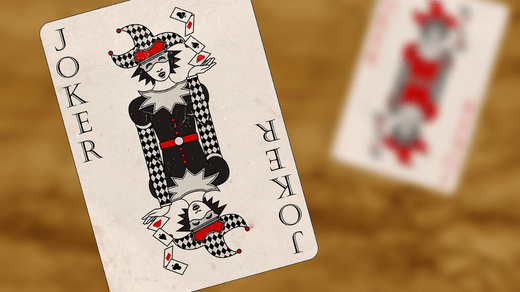Gambling has been a part of human civilization for centuries, and India is no exception. In recent years, the rise of online gambling platforms has sparked a renewed interest in this recreational activity. One such form of gambling that has gained popularity in India is satta matka indian. In this article, we will delve into the legal landscape of gambling in India, with a specific focus on the Satta Matka dilemma.
What is Satta Matka?
Satta Matka is a form of gambling that originated in India in the 1960s. Initially, it involved betting on the opening and closing rates of cotton on the New York Cotton Exchange. However, over time, it evolved into a more complex system, encompassing various forms of betting and gambling.
Historical background of Satta Matka
The roots of Satta Matka can be traced back to the era of India’s textile mills, where mill workers engaged in this form of gambling as a source of entertainment. It gradually gained popularity among a wider audience, leading to the establishment of a widespread gambling network.
Popularity of Satta Matka
Despite its illegal status, Satta Matka continues to thrive in many parts of India. Its popularity can be attributed to several factors, including the allure of quick and substantial financial gains, the social aspect of participating in a shared activity, and the availability of online platforms that make it easily accessible.
Gambling laws in India
India has a complex legal framework when it comes to gambling. The Public Gambling Act, 1867, is the primary legislation governing gambling in the country. It prohibits operating or visiting gambling houses, making it illegal to run physical casinos or betting establishments. However, the act does not explicitly mention online gambling.
Differentiating between games of skill and games of chance
One crucial aspect of gambling laws in India is the distinction between games of skill and games of chance. Games that predominantly rely on skill, such as chess or horse racing, are considered legal. On the other hand, games that are based on chance, like roulette or slot machines, fall under the purview of gambling and are subject to legal restrictions.
How Satta Matka works
Satta Matka involves players selecting numbers between 0 and 9 in various combinations. These numbers are then entered into a system and processed to generate a random outcome. The results are declared multiple times throughout the day, offering participants numerous opportunities to win.
Evolution of Satta Matka
Over the years, Satta Matka has evolved from a localized form of gambling to a more widespread phenomenon. It has embraced technological advancements and adapted to the digital age, with online platforms offering a convenient and anonymous way for individuals to participate in the game.
Impact on society
The Satta Matka phenomenon has had a significant impact on Indian society. On one hand, it has created a thriving underground economy, providing employment and income for a significant number of people. On the other hand, it has also led to various social issues, including addiction, financial hardships, and a negative influence on younger generations.
Controversies and legal challenges
Satta Matka has been mired in controversies and legal challenges throughout its existence. Its illicit nature has attracted the attention of law enforcement agencies, leading to raids, arrests, and crackdowns on gambling dens. However, despite these efforts, the game continues to persist, adapting to changing circumstances.
Court rulings and implications
Over the years, several court rulings have addressed the legality of gambling and the Satta Matka dilemma. The Supreme Court of India has emphasized the need for a balanced approach, considering the social implications and the potential for addiction while weighing individual freedoms. These rulings have shaped the legal landscape surrounding Satta Matka.
Efforts to regulate gambling
Recognizing the need for regulation, the Indian government has taken measures to control gambling activities. Some states have introduced their own regulations, legalizing certain forms of gambling, such as lotteries or horse racing, under specific conditions. However, a unified and comprehensive regulatory framework is yet to be established.
The Public Gambling Act, 1867
The Public Gambling Act, 1867, is a central piece of legislation that has implications for gambling activities in India. It empowers state governments to enact their own regulations and penalize gambling-related offenses. However, the act’s outdated nature and lack of provisions regarding online gambling pose challenges in the digital age.
Rise of online gambling platforms
The advent of the internet has revolutionized the gambling industry, including Satta Matka. Online platforms have emerged as convenient alternatives to traditional gambling establishments, offering a wide range of games and betting options. However, the legality of online gambling in India remains a gray area, creating uncertainties for both operators and players.
Impact on individuals and families
Gambling addiction is a serious concern associated with Satta Matka and gambling in general. The allure of quick financial gains can lead to severe financial and emotional consequences for individuals and their families. The societal impact of gambling addiction necessitates effective measures for prevention, intervention, and treatment.
Recent developments and prospects for the future
In recent years, there has been an increasing recognition of the need to address the challenges posed by gambling, including the Satta Matka dilemma. The Indian government has initiated discussions and consultations to formulate comprehensive regulations that balance individual freedoms and societal well-being. The future of gambling in India remains uncertain, with debates and deliberations ongoing.
The legal landscape of gambling in India is complex, with a delicate balance between individual freedoms and social well-being. The Satta Matka dilemma exemplifies the challenges faced by regulators and policymakers in addressing the evolving gambling industry. As technology continues to advance and societal attitudes shift, it becomes imperative to adapt the legal framework to ensure responsible gambling practices.




